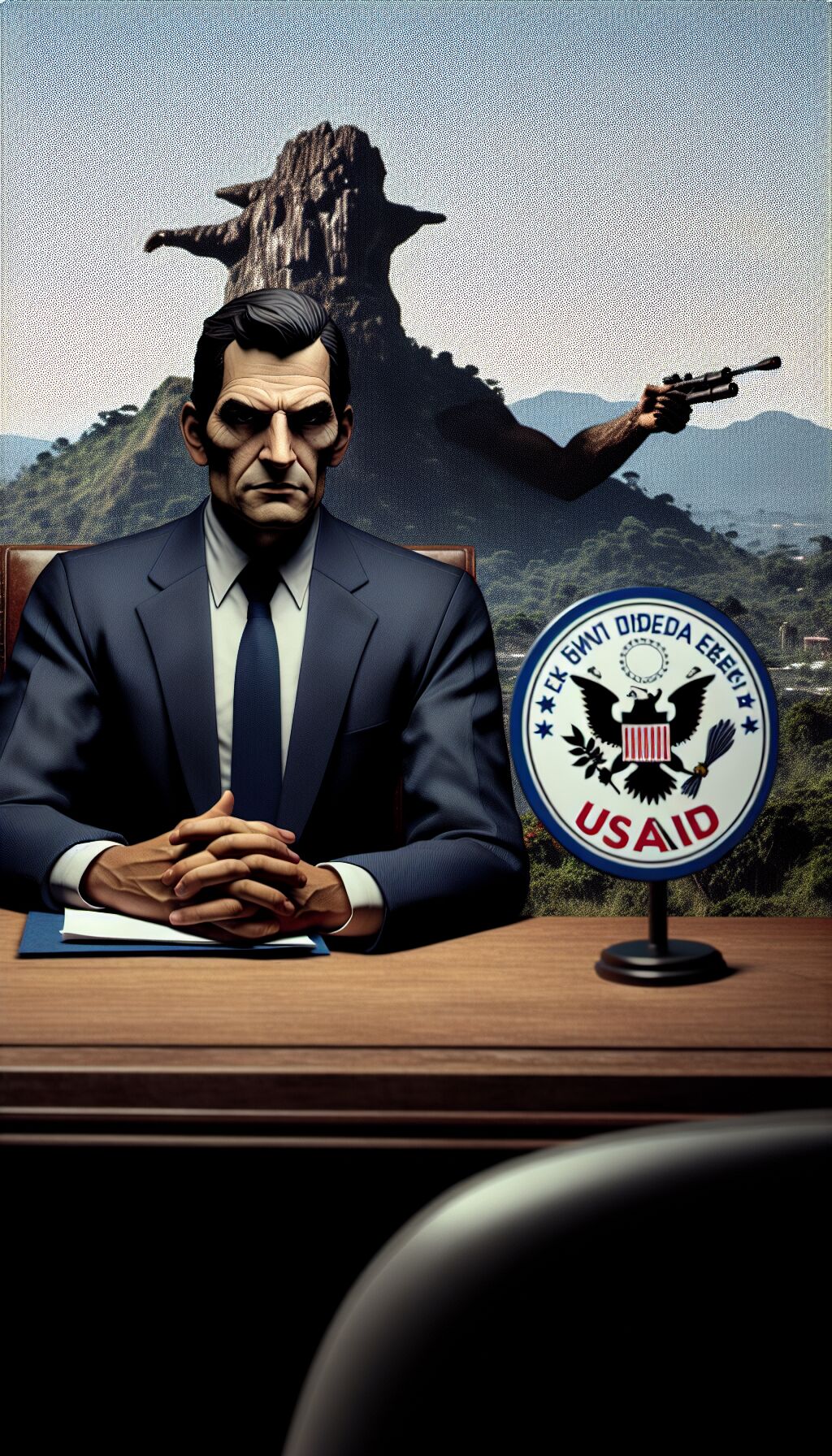Rubio Takes Charge Amidst USAID Controversy
EXCLUSIVE: In a bold move, Secretary of State Marco Rubio has openly accused the U.S. Agency for International Development (USAID) of “rank insubordination.” In an exclusive interview with Fox News conducted in El Salvador, Rubio announced that he would be taking on the role of acting director of the humanitarian agency under controversial circumstances.
Criticism of USAID’s Direction
During the interview, Rubio did not mince words as he criticized USAID for being “completely unresponsive,” asserting, “They don’t consider that they work for the U.S.; they just think they’re a global entity and that their master is the globe and not the United States, and that’s not what the statute says, and that’s not sustainable.”
This statement underlines the growing tension between the Trump administration and the agency tasked with delivering U.S. foreign assistance, highlighting concerns about a lack of alignment with American national interests.
Reform, Not Abolishment
Rubio refrained from endorsing the drastic measures suggested by figures like entrepreneur Elon Musk, who has proposed that USAID “needs to die.” Instead, he emphasized a commitment to reform: “There are things that we do through USAID that we should continue to do, that make sense, and we’ll have to decide, is that better through the State Department or is that better through something, you know, a reformed USAID? That’s the process we’re working through.”
The Path Forward for U.S. Aid
Despite the proposed restructuring of USAID, Rubio assured the American public that the U.S. would maintain its status as “the most generous nation on Earth.” However, he insisted that this generosity must be aligned with national interests, stating, “In a way that makes sense, that’s in our national interests.”
Addressing Geopolitical Concerns
When asked whether changes to USAID could create a vacuum for Communist China’s influence in various regions, Rubio responded with a firm “No.” He elaborated, “First of all, they don’t do that now. If they did, they’d be out there competing with us in these places. My point is this: even if they did that, why would we fund things that are against our national interests or don’t further our national interests?” Rubio’s remarks reflect a zero-tolerance approach towards foreign aid initiatives that do not align with U.S. priorities, regardless of the presence of China.
Response from the Foreign Service Community
In the wake of Rubio’s comments, the American Foreign Service Association (AFSA), a group and labor union representing U.S. foreign service workers, released a statement opposing the administration’s aggressive stance regarding USAID. The AFSA stated, “This will undermine U.S. national security, may subvert Congressional authority, and demonstrates a lack of respect for the dedication of the development professionals who serve America’s interests abroad.”
Broader Latin American Strategy
The interview with Rubio occurred as he visited Panama and amid President Trump’s recurring claims that the U.S. would seek to “take back” the Panama Canal, citing concerns regarding Chinese influence in the region. After meeting with the Panamanian President Jose Raul Mulino, it was announced that Panama would withdraw from China’s Belt and Road Initiative. Rubio welcomed this development but urged for “additional steps in the days to come,” highlighting the delicate geopolitical landscape in Central America.
Revisiting U.S.-Canada Relations
In a separate but related issue, Rubio acknowledged President Trump’s announcement regarding a 30-day pause on tariffs with Mexico and Canada. He noted that this “changes our economic relationship with our closest neighbors,” yet clarified that the State Department is not currently involved in any discussions regarding the possibility of making Canada the 51st state.
The Situation in Venezuela
Despite Venezuela’s recent release of U.S. hostages and its acceptance of migrants living illegally in the U.S., Rubio firmly stated that there are still no plans to recognize the Maduro regime as legitimate. He reiterated, “Maduro knows the U.S. has many options to inflict serious damage on his regime,” reflecting America’s continued stance against authoritarianism in Latin America.
Future Engagements
As a Cuban-American, Rubio expressed his feelings about visiting Havana, stating he has “no intention” of going there as America’s top diplomat “other than to discuss when they’re going to leave.” His trip through Central America continues with stops planned in Costa Rica and Guatemala, as the administration seeks to assert its influence while managing complex relationships across the region.
With mounting challenges facing U.S. foreign aid and diplomacy, Rubio’s leadership will undoubtedly shape the future of American engagement on the global stage.










